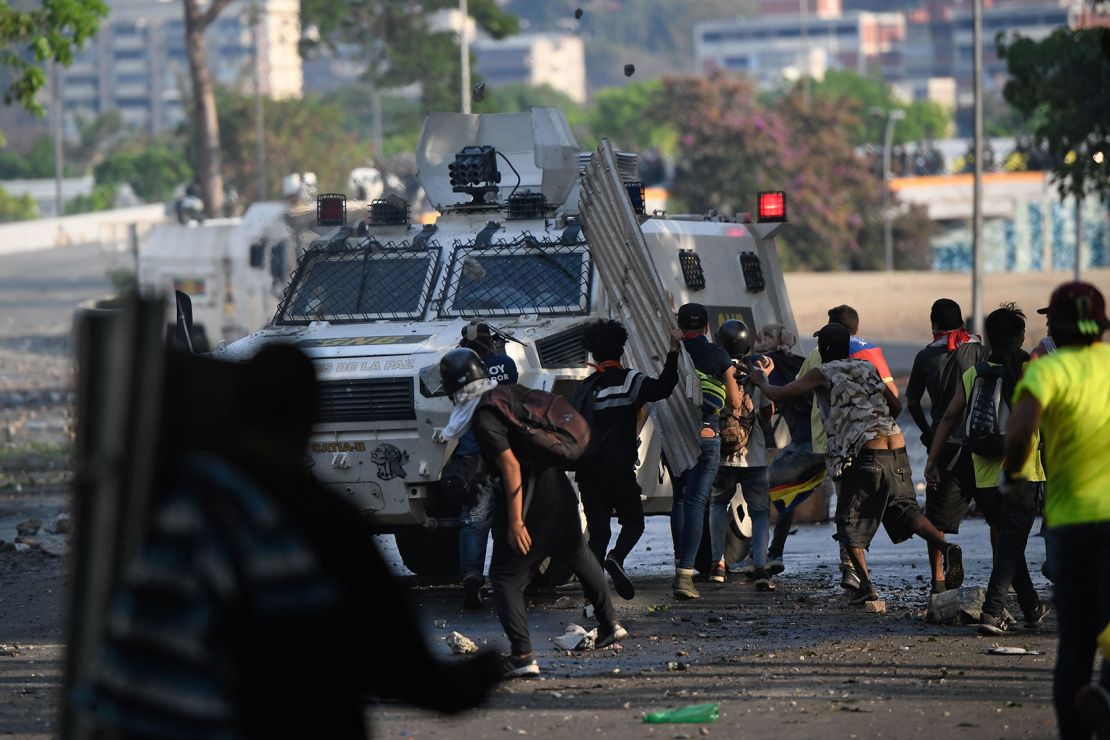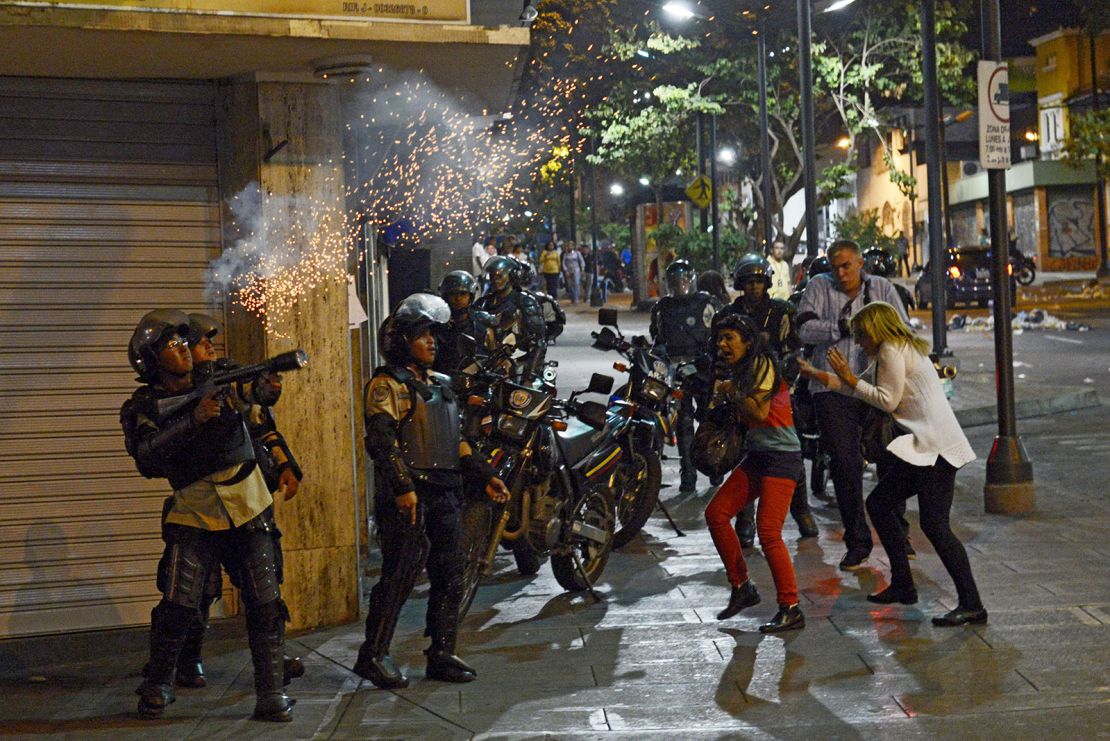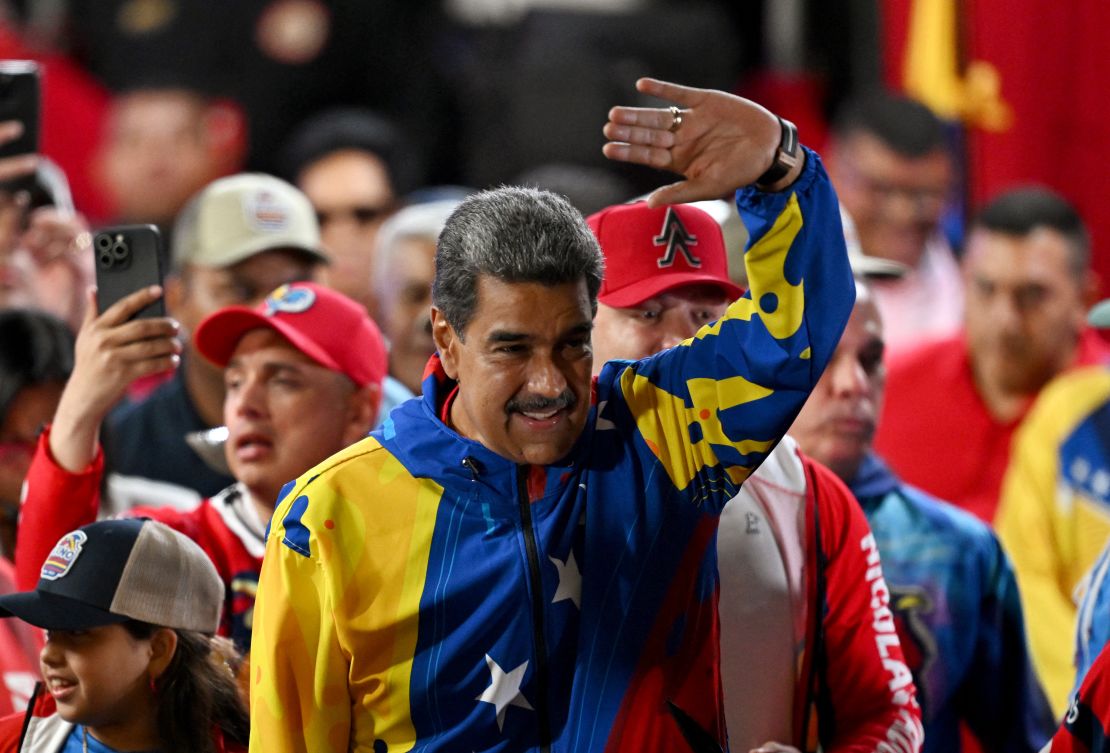
In the last decade, Venezuelans have repeatedly witnessed a familiar scene: Nicolás Maduro, the nation's strongman, standing on the Miraflores presidential palace balcony in Caracas, declaring his victory in yet another election. Maduro, wearing a jumpsuit adorned with the colors and stars of the Venezuelan flag, confidently addressed the nation and the world, proclaiming himself as the re-elected president. He emphasized his commitment to defending Venezuela's democracy, laws, and people, punctuating his speech with a raised fist and dancing on stage.
According to the National Electoral Council (CNE), Maduro won with 51.2% of the votes, based on 80% of the ballots counted. His main competitor, Edmundo González, an opposition candidate, secured 44.2% of the votes, as reported by the CNE. However, the opposition disputed these results, asserting that González had an overwhelming lead, with unofficial tallies from approximately 40% of the ballot boxes showing he garnered 70% of the votes. Opposition leader Maria Corina Machado declared their victory, claiming widespread support across all sectors and states of the country.

Internationally, the United States, the United Nations, and other countries have expressed concerns over the electoral process in Venezuela. US Secretary of State Antony Blinken, speaking from Tokyo, emphasized the need for a fair and transparent count of every vote, urging Venezuelan authorities to share information with the opposition and independent observers promptly. The UN and the Carter Center, the only independent observers allowed in the country, also called for the timely release of results. However, a preliminary report from the Carter Center was delayed, and the organization is withdrawing its staff from Venezuela.
Several Latin American countries, including Argentina, Chile, Costa Rica, Peru, Panama, the Dominican Republic, and Uruguay, have refused to recognize the election results, leading to the expulsion of their diplomatic staff from Venezuela. The Maduro administration accused these nations of being part of a group aligned with right-wing Washington interests, promoting what it described as fascist ideologies. In contrast, Maduro's allies, such as China and Cuba, quickly congratulated him on securing a third term.

Amidst the controversy, the Maduro government added to the confusion by claiming a cyberattack on the country's automated voting system, allegedly originating from North Macedonia. Attorney General Tarek William Saab suggested that opposition leaders, including Machado, Leopoldo López, and Lester Toledo, were involved in the attack, although no evidence was provided.
The political situation in Venezuela has prompted nearly 8 million people to leave the country since 2014, according to the United Nations High Commissioner for Refugees (UNHCR). Many have fled to Spain, Peru, and Brazil, with increasing numbers attempting the perilous journey through the Darién Gap toward the United States. A survey by ORC Consultores revealed that over 18% of respondents would consider leaving Venezuela if Maduro remained in power. Venezuelans were the second largest group of migrants encountered by US Customs and Border Patrol in 2023, with over 260,000 apprehensions, a significant increase from previous years.

The US government has urged the Venezuelan authorities to release detailed election data promptly. While no specific actions were disclosed, there is speculation about potential sanctions if the results are deemed fraudulent. Should Maduro assume office in January, he will extend his presidency until 2031, continuing the legacy of Chavismo, a movement started by Hugo Chávez in 1999, characterized by nationalization policies and the redistribution of oil wealth.
For many Venezuelans, the prospect of another six years under Maduro's rule is a grim reality, leading some to consider leaving the country. Heczair Blanco, a Venezuelan woman in Buenos Aires, expressed her sorrow and desire for freedom in Venezuela, highlighting the widespread disillusionment among the population.

:max_bytes(150000):strip_icc():format(webp)/alec-baldwin-torino-film-festival-121824-3cf7cfbe5c4f4bcbb9197de4de062ea6.jpg?strip=all&resize=370,370)
:max_bytes(150000):strip_icc():format(webp)/Jimmy-Fallon-and-Prince-Harry-092624-baa1362d743d4f39a7d60bf57eb6e8b2.jpg?strip=all&resize=370,370)
:max_bytes(150000):strip_icc():format(webp)/randy-moss-121324-40b858c71b0f40bfa399e2fe00152b2a.jpg?strip=all&resize=370,370)
:max_bytes(150000):strip_icc():format(webp)/scandal-kerry-washington-121824-c51a2b5f0ef741268474bec2498c285a.jpg?strip=all&resize=370,370)
